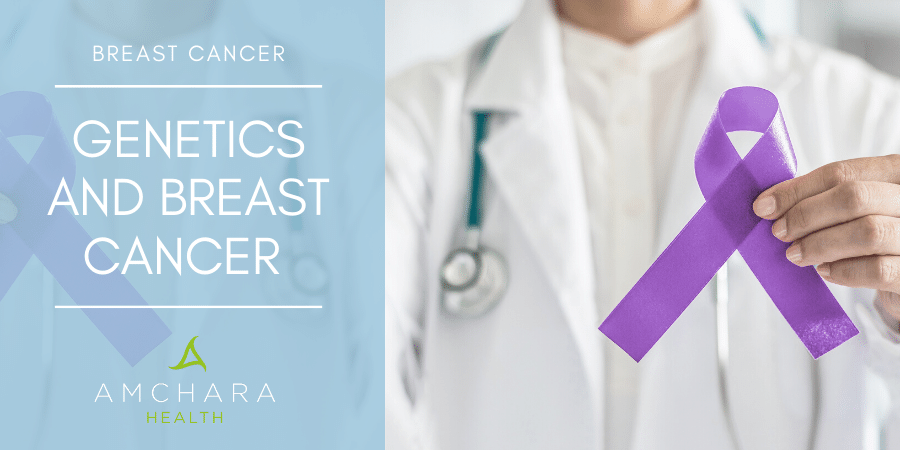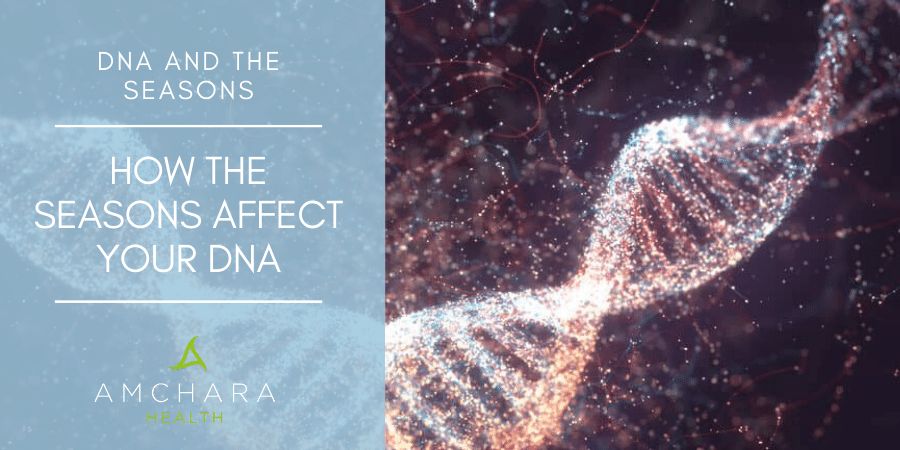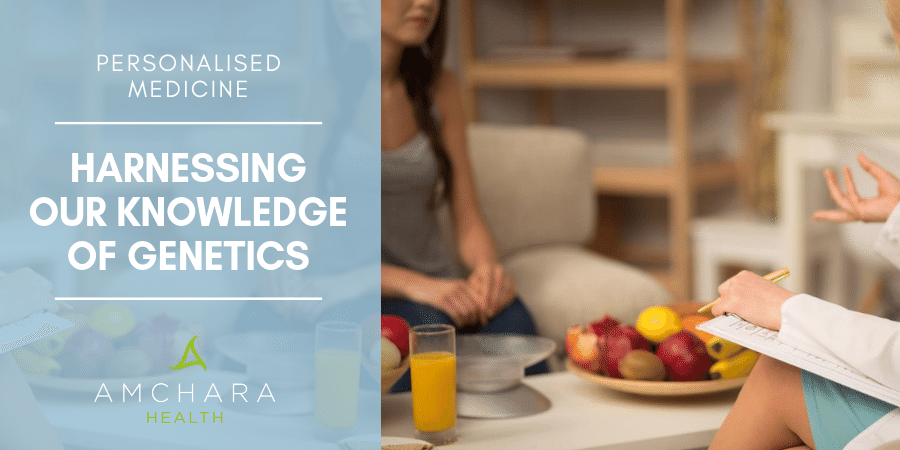Topics Covered in this article:
Breast cancer is the most common cancer in the UK, and it is estimated that 1 in every 7 women will be diagnosed with breast cancer in their lifetime. A variety of factors both increase the risk of developing breast cancer and may also impact breast cancer survival.
We’re dedicated to providing you with both insightful information and evidence-based content and in this article we examine the evidence behind genetics and breast cancer.
Genes
Genetics can be a tricky subject to understand and it can be helpful to revisit some basics. Genes are short segments of DNA present in chromosomes, within the nucleus of a cell. DNA is essentially an instruction manual for the building of proteins, these instructions are very specific and any errors in genes can lead to changes in the protein manufacture.
As proteins are responsible for the structure and function of cells, any such changes may impact cell growth as well as structure and function. Some changes to DNA are not harmful and cause no issues, whereas other DNA mutations may lead to poor health.
The most common form of genetic variation is called a single nucleotide polymorphism, or SNP (pronounced ‘snip’). Each SNP is a difference in a single building block of DNA.
Breast cancer genes
- BRCA1 and BRCA2
The most well known breast cancer genes are BRCA1 and BRCA2 and around 1 in 450 women carry a BRCA1 or BRCA2 mutation. These genes are responsible for the maintenance and repair of breast and ovarian cells, as well as other cells. SNPs to these genes may impact function and lead to an increased risk of breast cancer. However, not all mutations to the BRCA1 and BRCA2 genes increase the risk of cancer. Research has shown that women carrying a BRCA1 or BRCA2 mutation have around 45-65% chance of developing breast cancer by the age of 70 (1).
Breast cancer associated with a BRCA1 or BRCA2 mutation is more likely to occur in younger women and involve both breasts, compared to women with breast cancer without these mutations. As these genes are responsible for the maintenance and repair of ovarian and other cells as well as breast cells, the mutations are also linked with an increased risk of developing ovarian, colon and pancreatic cancer and melanoma (2).
It is not just women who experience health risks associated with a BRCA mutation – men with a BRCA2 mutation also have an increased risk of breast cancer, compared to men without the mutation. A BRCA2 mutation is also known to increases the risk of developing prostate cancer (3).
- Other gene SNPs
It was initially thought that around 10-15 gene SNPs are associated with an increased risk of breast cancer, but recent research indicates over 100 genes may be involved (4). Many of these pose a smaller risk than SNPs to the BRCA1 or BRCA2 genes. The majority of the gene SNPs that may increase risk are involved either in DNA repair, synthesis of tumour suppressive proteins or regulation of cell growth.
Gene mutations to the ATM, BRIP1, CHEK2, NBS1, PALB2 and RAD50 genes are all associated with a significant increase in the risk of developing breast cancer (5).
SNPs to the P53 and PTEN genes carry a very high risk of developing breast cancer in specific rare syndromes such as Cowden syndrome.
A single gene SNP may impact breast cancer risk, but a combination of two or more gene SNPs that may be involved in breast cancer may give a further increased risk.
Genetic testing
Currently the most commonly tested genes are the BRCA1 or BRCA2 genes. This is highly recommended if there is a history of breast cancer in the immediate family, particularly the mother, grandmother or sisters, or if the cancer onset was at an early age.
Predictive genetic testing can give an indication of one or more gene SNPs that may indicate a personal risk of developing breast cancer. The key word here is may, as although gene variants may be involved there are several other factors involved in breast cancer that may potentially pose a greater risk collectively.
Other risk factors
A variety of factors can be involved and quite often it is a combination of factors that lead to the development of breast cancer. Advancing age is the main risk factor for developing cancer. Studies have indicated the following play a role in breast cancer formation:
- Reproductive factors – having a child at an older age, an early onset of menstruation and late onset menopause may all play a role.
- Oral contraceptive – the effects of oral contraceptives on breast cancer is variable and, although it may contribute, it may only account for 1% of cases (6).
- Not breastfeeding – 5% of breast cancers may develop due to not breastfeeding.
- HRT – the use of synthetic hormones post-menopause may pose a higher risk of breast cancer compared to oral contraceptive use. However, previous oral contraceptive use before HRT and other factors such as lower BMI and duration of HRT use may further increase risk.
- Overweight or obese – it is estimated that 8% of breast cancer cases are due to being overweight or obese. Fat tissue produces more oestrogen and leads to an increase in inflammation; a high inflammatory state may be involved in cell damage.
- Alcohol – known to impact the liver and hormone metabolism, alcohol can increase the risk of breast cancer from 9% through to 60%.
- Smoking – thought to impact hormone balance, smoking tobacco also increases damaging molecules called free radicals, potentially contributing to a situation called oxidative stress, where damage to cells occurs.
- Sedentary lifestyle – an active woman is on average 13% less likely to develop breast cancer (7).
- Ionising radiation – previous cancer therapy with radiation, particularly to the neck and chest area, is known to increase cases of breast cancer.
- Breast density – breast cancer is around 3-5 times more common in women with increased breast density (8).
Additional factors that may contribute to breast cancer development include vitamin D status and exposure to endocrine disrupting chemicals, such as those found in plastics.
The link between gene SNPs and breast cancer is complex – add in the many nutritional and lifestyle factors and assessing your risk may not be straightforward. If you would like to know more about your genetic profile and the risk for conditions like breast cancer, a one to one consultation with a Personalised Health practitioner can help you understand more.
Did you find this article useful? We are dedicated to providing insightful information on key aspects of health and would love to hear your feedback.
Have you had a genetic test?
Share your experiences and help empower others to make positive changes.
Read this next:




